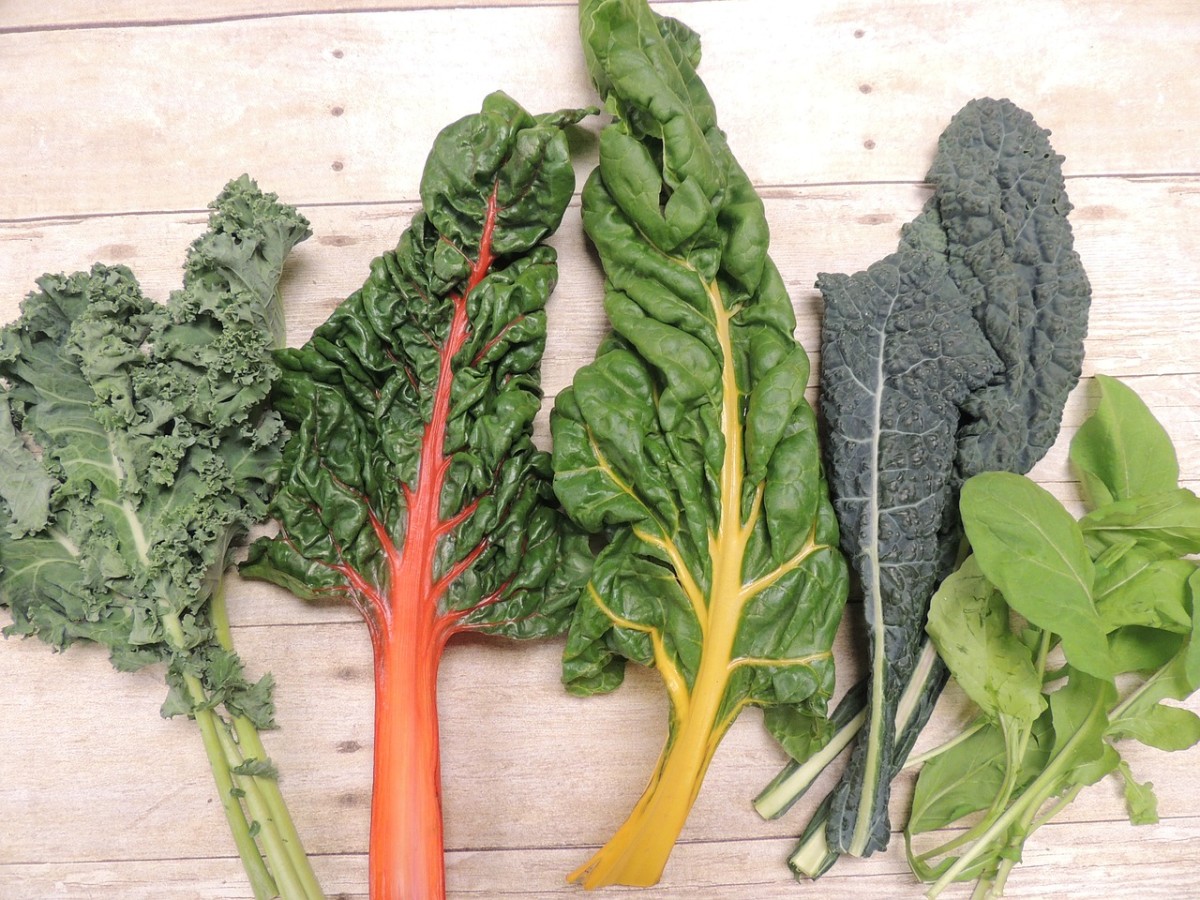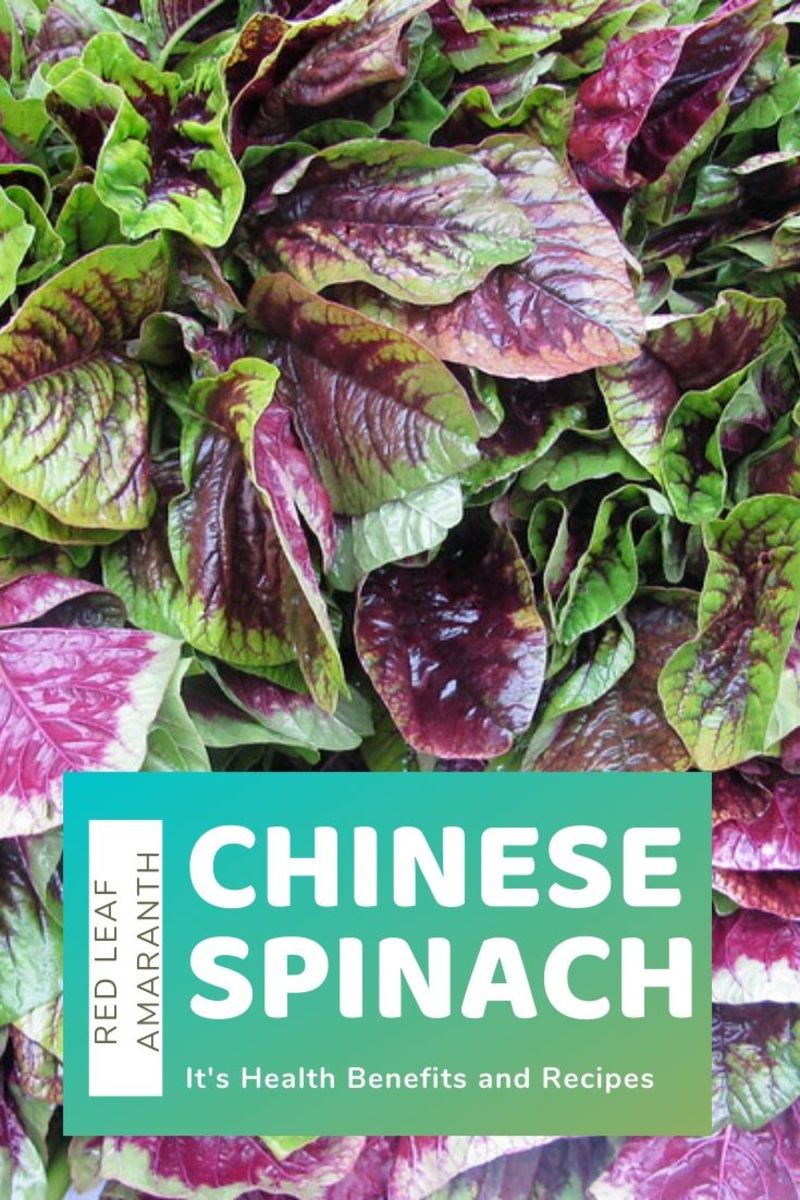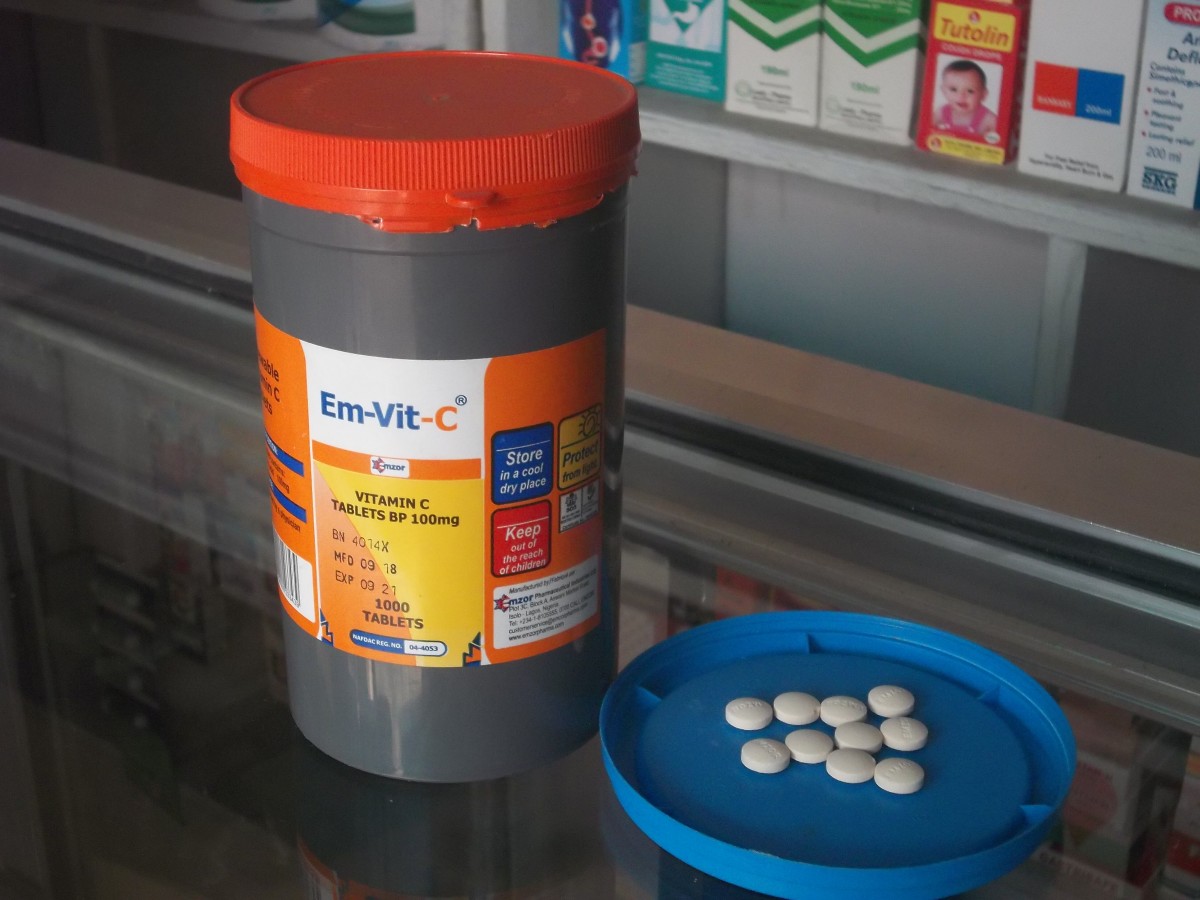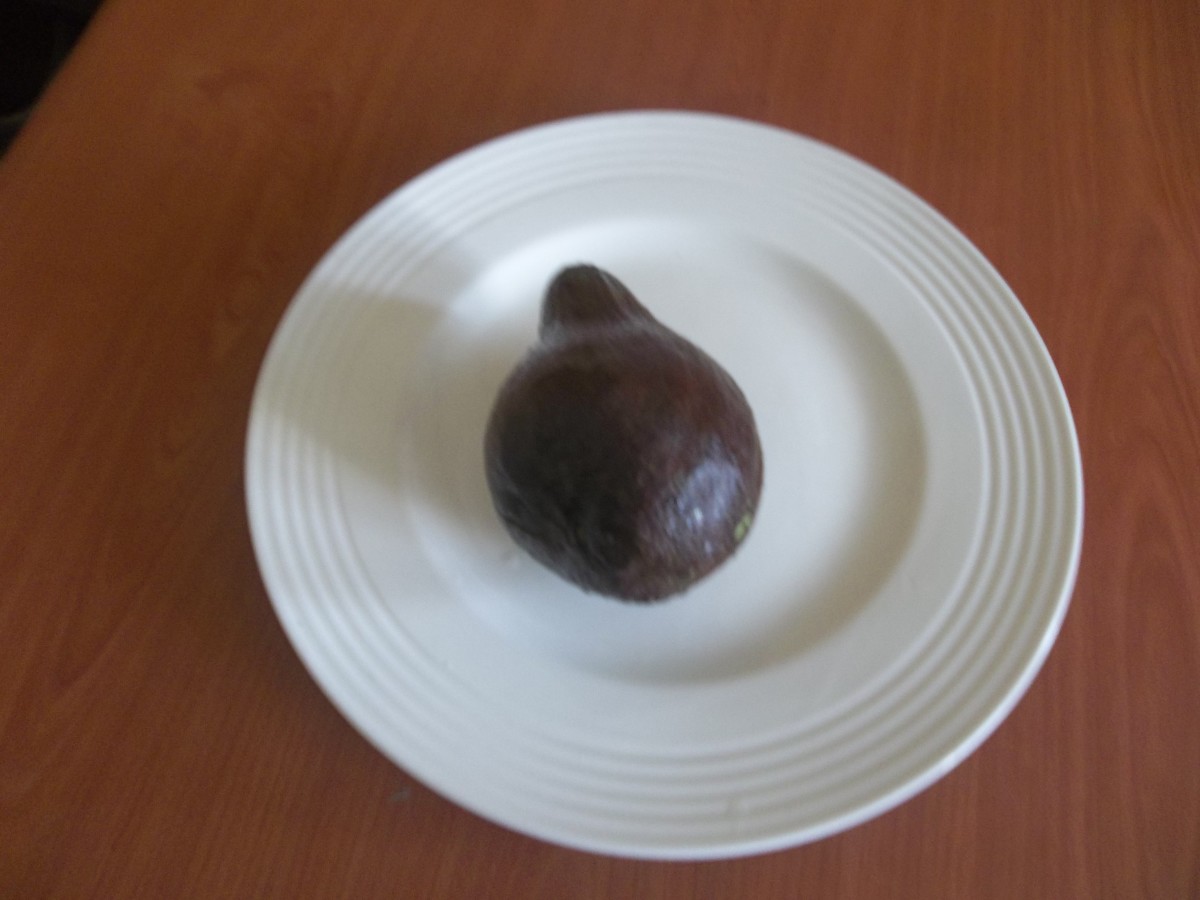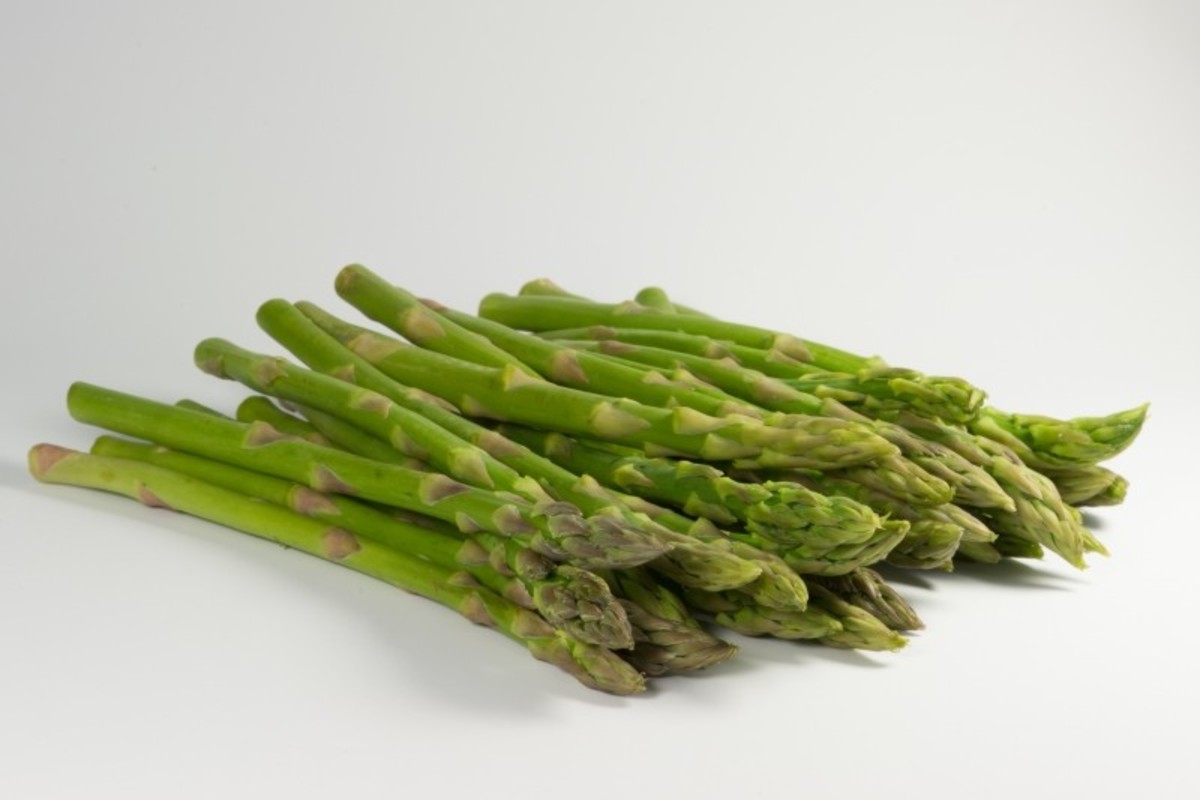How To Understand Nutrition Facts And Fiction

Photo Credit: WikiCommons Ayda
Nutrition Tips and Advice
There is an overabundance of tips and advice about nutrition everywhere! We are saturated with it. Some folks claim that if you eat a low-carb diet, you'll lose weight and be healthier. Still others claim that low-fat is the way to go. Stop the madness - I want to get off!
Some of the information available is sound advice - some of the other information out there is not so sound advice.
Keep in mind that I am a person who believes in the conservative approach - all things in moderation and all that. That said, here are my views and tips on nutrition and some of the myths I think we've all heard.
Nutrition and Weight Loss
Nutrition Basics
Some basic facts about nutrition:
- Whole unprocessed foods in any form are going to give you the best nutrition
- Maintaining the proper caloric and nutrient intake is going to keep you in good health
- Exercise combined with nutritious eating will keep your metabolism on an even keel
- Preparation of food has the most significant effect on what you eat
- Any diet that is too limited/specific is probably not going to be nutritious in the long run
- Missing meals is NOT a nutritious practice
- Taking multiple supplements and additions to your diet is not good nutrition common sense
- Labels on foods are only as good as we understand them and research them
- Eating something every 4 hours is good for your metabolism
- Lean meat is actually better for you than chicken with the skin on
- Dietitians and nutritionists have a better handle on nutrition than diet advocates and gurus
- Fruits and vegetables (3 of each) should be part of the daily diet
- Alcohol should be consumed in moderation to avoid excessive calories and health risks
- Calories matter - it is the only way to have a stable weight
More Nutrition Tips
Some Myths About Nutrition
Some of the most common misconceptions about nutrition:
- If foods are low-carb or low-fat, I can eat as much as I want of them
- If I take enough vitamins and supplements, I don't have to worry about content in food
- I should eat until I feel stuffed - then I will know that I'm full
- If I overeat, I should miss a meal
- As long as a food is low-carb or low-fat, it doesn't matter how it was prepared
- I eat right, I'm thin and I do not need to exercise regularly
- Sugar causes diabetes
- Skipping meals occasionally can't hurt - it helps lose weight
- Fruit juices are nutritionally beneficial
- Canned soups, vegetables, fruits are just as good as fresh
- If I buy 7-grain bread, it is healthy
- Nuts are bad for you because they have too much fat and calories
- All fat is bad for you
- If I'm pregnant, I should eat more
- If I eat brown sugar, I'm making a healthier choice
- Seafood such as shrimp elevates cholesterol
- Avoiding carbs will help me lose weight fast
- Avoiding red meats is the healthiest choice
- Brown eggs are better for me than white eggs
- As long as it says 'natural' it is good for me
- Pop and caffeinated drinks are a great way to lose weight and speed up metabolism
- Margarine is better for me than butter or oils
As you can see above, there are a lot of contradictory ideas floating around about nutrition! Who are we to believe? First, if you are considering a nutritional program, take the time to check out the person's credentials - whether is a diet on-line or a nutrition book - or even a face-to-face with a nutritionist. Make sure that the person you are turning over your nutritional life to knows what they are talking about.
Whole foods and foods closest to their natural state will always be more nutritional than processed foods. However, in order to realize the difference between let's say 7-grain bread and whole grain bread, you have to read the label. If the 7-grain bread is processed then no - the bread is not as nutritious as it would be were it left in whole grain state so a whole grain bread would be more nutritious.
Eating low-carb or low-fat foods still adds calories - it is ALL about the calories. You cannot stay fit and healthy or maintain proper nutrition if you are exceeding the cap level for calories for your individual body frame. It simply can't be done. If you consider how much exercise it takes to burn off 300 calories (for example 30 minutes of 2.5 miles per hour on a treadmill), you can see that adding 3 extra cookies or a couple glasses of wine has just taken care of what you worked to burn off. It cannot be said too many times - nutrition and/or weight loss - or staying where you would like to be - it is all about the calories. Numbers don't lie.
Exercising increases metabolism and is essential for burning fat. It also has the added benefit of keeping you fit and mentally alert. There are so many pluses to exercise that exercise should be a routine part of everyone's day. It is not something that needs to be scheduled - it can be varied and entertaining - but it should be part of any all-around nutritional program.
No one should be taking more than 1 all-purpose vitamin per day. Vitamins and supplements are not a replacement for sound nutrition. If additional supplements are recommended, they should be recommended by a physician. Herbalists and health food store personnel do not qualify to give out nutritional advice! Sometimes you can do your body more harm than good in listening to people who 'think' they know nutrition but really don't.
How a food is prepared has a lot to do with many things - the remaining nutritional value for one thing; the caloric content for another. While canned soups and vegetables for instance may sound nutritious, they are but they aren't as good as the ORIGINAL. By the very fact of being in a can or processed in some way, they have lost nutritional value because of that processing. You also need to be aware of the additives, preservatives, enhanced coloring, and sodium that go into all of these foods. These 'add-ons' can impact your diet and nutrition significantly.
Labels, labels, labels - you almost have to be a rocket scientist to decipher food labels. However, here is a great site on reading and understanding them at fda.gov. You must understand what you are reading though to actually have an impact on your nutritional balance. Portion size is critical - understanding that the whole bag of chips does not have 100 calories in it but rather 1200! Understanding what you are looking for in terms of good fats, bad fats, fiber, sugar, and sodium for instance - these are all vital to knowing what is in the food. Also reading the footnote - based on caloric intake, etc. gives you another fund of information.
Brown eggs and white eggs are exactly the same in nutritional value. The only difference is the color of the hen's feathers that laid them! However, there are many 'enhanced' egg products out there and it is important to read that label as well. Calories can be doubled by some eggs with 'add-ons'.
Brown sugar is simply white sugar with molasses added to it! Honey is a much better alternative if you can find recipes using it - or use recipes with less sugar than the norm.
All fat is not bad! All carbs are not bad! We need some of that fat and those carbs to maintain brain health and steady our metabolism. Without these 2 entities (in moderation and the right kinds of both) in our systems, our metabolism shifts yet again and it becomes harder rather than easier to lose weight or maintain good health.
Caffeine and pop have NO nutritional value. Lattes I have always argued do to some extent because of the milk but for the most part, people using soda or coffee, etc. to speed up their metabolism are actually having the opposite effect. Caffeine makes you hungrier and also produces the 'crash' effect of a less than healthy diet.
Fruit juice, while a better alternative to pop or coffee, is not the same as actually eating an apple. By the time the fruit has made it to the juice, it is not the same nutritionally once it has been processed and wrung out of most of its beneficial properties.
Skipping meals is a great way to overeat at the next meal. It also throws off your body's metabolism and makes it that much harder to regulate. Eating something every 4 hours (such as a few nuts or an apple or celery) is a far better way to maintain steadiness in your metabolism and thus not feel hungry. Even switching your main meal to noontime and then eating a salad for instance at dinner is an excellent way to eat as well. Also eating at the same time each day is an excellent regulatory practice for metabolism. Eating a few nuts per day is a great way to supplement your nutrition and get the right kind of fat. Everything in moderation - substituting a few nuts for a huge bowl of chips for instance is a good practice!
Fried anything is never going to be as nutritious as the 'real thing' or non-fried like product. However, most of us do enjoy certain comfort foods and good nutrition doesn't have to be about eliminating everything. It should be about finding alternative methods for standard recipes. There are millions of good cookbooks on cooking nutritionally and that is a great start. I personally have always liked Cooking Light cookbooks and magazines because they give me options on making something I love while still cutting calories AND fat, adding more fiber, etc. Investing in these can be a wonderful addition to your nutritional database and finding new ways to cook can be invaluable.
For instance, I make an oven-fried chicken that is marvelous. I first remove the skin from the chicken pieces dip it in low-fat buttermilk, but when it is finished, it is delicious! I generally use nonfat milk or nonfat dairy products in place of whole milk products unless I absolutely cannot get around it. I cook with butter over margarine, olive oil over any other oil - however, I look for recipes consistently that cut the fat content by at least half. I also look for high fiber recipes and recipes that use other things instead of sugar or at least less sugar for sweetening. I also eliminate completely toppings or frostings - if a recipe absolutely has to have one, I make sure it is a watered down version or a light dusting with only powdered sugar for instance.
Cutting out the amount of sugar that we consume every day would go a long way to making us ALL healthier and ultimately happier. I am a huge advocate for learning to prepare food alternative ways to boost nutrition and think if we can read, we can cook! Even substituting things works well for me so instead of a bread crumb base for my cheesecake, I whir up a bit of granola and nuts to make the crust instead. I substitute more nutritious flours in recipes for the same reason - to put back the nutritional content that so many processed foods have removed.
Steaming vegetables or eating stir-fried is another great way to retain nutrients and not overcook the life out of fruits, vegetables, etc. Eating more salads and adding fresh fruits and vegetables, or a sprinkling of nuts to cereals, salads, vegetables is a great way to enhance your nutrition. I also use olive oil spray as much as possible to brown anything that I need to instead of frying. I use it to oil pans or bowls. I also use it as a spray on things I bake instead of brushing with butter or margarine.
Summing It Up
In short, nutrition doesn't have to be difficult. I always think that if we just get back to 'basics' or if we think about the way people ate in other times, we might have a better shot at maintaining adequate nutrition - also reducing obesity and heart disease, etc. There are so many simple ways to boost nutrition and I discover more each day as I continue to search for answers.
Nutrition doesn't have to be boring. In many ways it is just good common sense - the more natural a food is or the more it resembles its original state, probably the more nutritious it is going to be.
Preparation of food and nutrition also go hand in hand - prepare it the best way to retain the viable components of that food and you will maximize nutrition.
How to change a traditional meal such as KFC fried chicken into a healthier meal.
More Hubs on Nutrition
- Sprout a Tiny Vegetable Garden With Big Nutrition
By sprouting seeds and beans you can harvest a crop in only four or five days. You don't even have to to mess with dirt, soil or growing medium, to get a fresh, edible, nutritious crop... - Weight Loss After Pregnancy - Exercise, Nutrition & ...
There are so many different approaches, so many backgrounds, so many options and opinions, and so many different promises. But what I offer here, is the naked truth on experiences with weight loss and getting back in shape as a new mom. Simple, real - Cinnamon Health Benefits and Nutrition Facts
Cinnamon isn't just for cinnamon rolls. Oh no! Cinnamon is a powerful natural healer and can help with many health conditions, including diabetes, arthritis, colds, flu, stress, ulcers, and many more! Find out about these and cinnamon nutrition facts - Graves Disease Diet Tips And Nutritional Supplementa...
People with Graves Disease need to eat healthy and take the proper nutritional supplements if they want any chance to restore their health back to normal. Most people with this autoimmune thyroid disorder... - 10 Summer Nutrition Tips
As the weather starts to warm up, your nutrition needs are going to change a little bit. Sure, the basics stay the same you need to eat a balanced diet, watch your caloric intake, etc. However, there are... - McDonalds Nutrition
I must admit when I first heard about McDonalds nutrition, I nearly wet myself laughing. I mean come on, McDonalds and nutrition are just a not bedfellows, they don't go together, it's like talking about Mike... - The Basics Of Pre And Post-Workout Nutrition
Upon starting a new fitness plan, or if you are already a seasoned exerciser, you are likely going to want to start paying a little more attention to your nutritional intake. When you are eating proper foods,... - Coconut water Nutrition and Health Benefits
Coconut water is the juice of young tender coconuts and is a natural energy drink. It is delicious, refreshing and very nutritious and has tremendous health benefits. The water of tender young coconut,... - Nutrition Supplements for Breast Cancer Prevention
Nutrition Supplements for Breast Cancer Prevention will discuss natural and herbal supplements that have been found not to cure, but can perhaps help to enhance an individual immune system against breast... - Tips on Healthy Cooking
Whether you are trying to revamp your eating habits to lose weight, change your diet or prevent illness - or all of the above - learning to cook healthy food is the greatest gift you can give yourself and... - Benefits Of Low Fat Diets Versus Low Carb Diets
While I think that both of these diets have their strong points, having done both types myself, I have found that the low-fat diets are the easiest to maintain over time and as well have the benefit of being...





